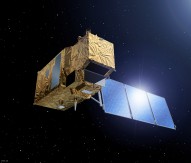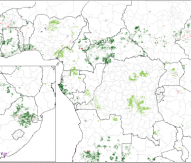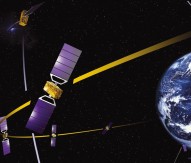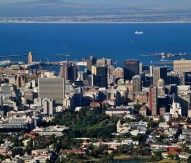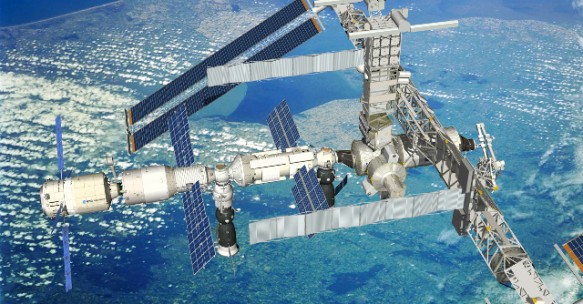
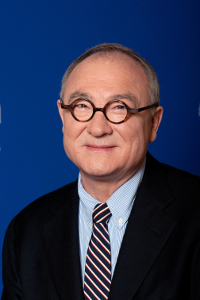
Professor Jean-Jacques Dordain © ESA
ESA and EU: Seeing the stars together
In November 2012, the European Space Agency (ESA) concluded a successful two-day council meeting at ministerial level in Naples, Italy. At the conference, ministers from ESA’s 20 member states and Canada allocated €10bn to the agency’s space activities and programmes for 2013-2017.
ESA’s Director General, Professor Jean-Jacques Dordain, talks to Horizon2020projects.com about the main commitments made during the meeting and how they will help Europe to maintain its position at the forefront of space exploration.
BODY TEXT:
Budget objectives
The €10bn investments stemming from the council meeting at ministerial level were carefully balanced among three complementary strategic objectives: pushing the frontiers of knowledge; supporting an innovative and competitive Europe; and enabling space-based services.
The first objective (pushing the frontiers of knowledge) is achieved through a combination of mandatory activities within ESA’s scientific programme (solar system and Universe) and optional activities that take into account Earth sciences for the increased understanding of our planet, as well as the science that comes from the exploitation of the International Space Station and the space exploration programme.
The second objective (supporting an innovative and competitive Europe) concerns telecommunications, launchers, technology research and technology transfer. The strong investments of member states in telecommunications are complemented through partnerships mostly with private partners (industry and operators) and are passed on to the development of the next generation of telecom platforms (NeoSat and Electra).
The launchers’ domain sees the continuation of the development of an adapted version of Ariane 5 Midlife Evolution for a maiden flight in 2017/2018 and the detailed definition studies for the new Ariane 6 in view of the start of its full development in 2014 and a maiden flight in 2021. The investments in the field of technology programmes, which are interlinked with all other programmes, will support Europe’s edge in world markets.
The funding related to the third objective (enabling services) is at least doubled through partnerships with EUMETSAT and the EU. These investments aim at maximising benefits deriving from satellites to society and the economy, in particular through programmes such as Meteosat Second Generation in the field of meteorology, IRIS for safe communications in air traffic management and SAT-AIS, which deals with vessel identification for maritime surveillance.
GMES/Copernicus
The European GNSS Evolution Programme (EGEP) in the domain of navigation, where the second-generation of Galileo will be prepared, and the third slice of the space component of the EU’s GMES/Copernicus programme in the field of Earth observation for environment and security are also contemplated in the third objective.
During the meeting in Naples, ministers also approved a political declaration towards the European Space Agency that best serves Europe. In order to successfully manage Europe’s space activities for the benefit of its member states, ESA has had to continuously adapt to a changing environment ever since its inception. A further major step in this evolution occurred with the start of the Galileo development programme in 2000, in co-operation with the EU, followed by the GMES/Copernicus programme for global monitoring for environment and security. In gradual steps, through the will of their respective member states, ESA and the EU have increased their co-operation. In 2007, a Joint European Space Policy was welcomed by all EU and ESA member states. The EU is now committed to creating and maintaining the fully operational Galileo system and has agreed to fund the operational Copernicus programme.
ESA & EU
These major commitments have greatly strengthened the bonds between ESA and the EU. Moreover, the Lisbon Treaty made explicit the EU competence in space and is modifying the political and institutional setting for co-operation since the EU is putting in place, step-by-step, the instruments they need to implement their competence in space. This is good news for Europe. These changes should lead to having space further used as a tool for the EU policies and to reinforcing the visibility of space at political level.
Taking stock of the above, the ESA council at ministerial level has concluded that, in order for the European space sector to take full benefit from these institutional evolutions, and to ensure that this sector can evolve towards a further increase of efficiency and competitiveness, it is time to reflect on how ESA itself can evolve in order to best serve Europe, its policies and its citizens, building on its heritage and taking stock of this new EU dimension, in order to prepare for any necessary decisions to be taken by member states on the further evolution of ESA at their next rendezvous at ministerial level in 2014.
Horizon 2020
The most important aspect of space in Horizon 2020 is to ensure that the relevant EU and ESA work programmes are complementary, not only in space science but in technology, Earth science, ISS exploitation and applications development. It is also essential to ensure that the management of the programmes is co-ordinated effectively and that the different tools available to the organisations are used appropriately, taking account of some of the unique features of the space sector.
ESA is in detailed discussions with the Commission on all of these different programme areas to make certain that, between us, we maximise the scientific and innovation benefits for the member states and for the industrial and scientific communities. This is a challenge, as the two systems have some significant differences. However, we have already shown with Galileo and Copernicus that there is greater flexibility than may at first appear to be the case, in both the ESA and the EU financial regulations.
Professor Jean-Jacques Dordain

